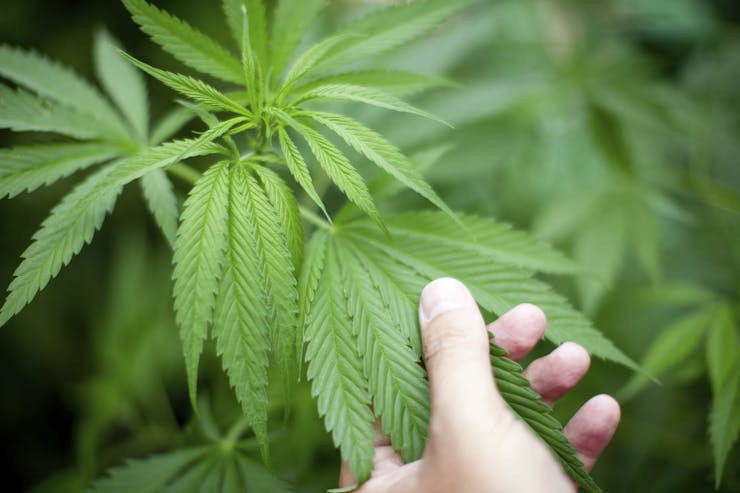This series was written by Trevor Smith, a marijuana industry veteran with years of experience running a state-licensed seed-to-sale cannabis operation. Having recognized a growing need to attract great talent to the cannabis industry, Trevor has developed position-specific approaches to help those who are interested in employment opportunities within the rapidly growing cannabis industry. These articles are designed to offer guidance for those who are looking for work in the legal cannabis industry but are unsure of how to get started. Part 1 offered general interviewing advice, while Part 2 covered tips on getting a job as a budtender. Part 3 addresses how to get hired as a cannabis grower.
So you want to be a legal cannabis grower

Growers are a unique breed, and the best of the bunch are passionate about their garden, highly dependable, and thrive on exposure to new and different horticulture techniques. The grower role is often the most covert position in medical cannabis because their processes are considered trade secrets, and rightfully so — successfully cultivating cannabis on a large scale is no simple task. There are dozens of factors that have to be perfectly controlled over the approximately 90 day growing cycle. If the environmental controls or nutrient schedule fail for even just a few hours, the entire harvest will be negatively impacted, and in some cases completely lost.
If you’re interested in becoming a grower, know that you have to be experienced, patient, organized, and thorough. The following steps should help improve your chances of getting hired by a cultivation center.
Step 1: Be humble

A master grower is someone who has several years of experience running commercial scale gardens. Even though you may have an intermediate to advanced understanding of horticulture and have had previous success in your gardens, be wary of describing yourself as a “master” grower as potential employers will be skeptical of that term. Instead of getting caught up in vanity titles, you should focus on showing your horticulture education and experience, your desire to improve your craft, and your willingness to be part of the team.
Avoid making the following statements:
- The plants you grow are “the best” and “would win any competition.”
- Your system is “the only way to do it right” and “change isn’t an option.”
- All other growers “must not know what they’re doing,” and “that’s why they suck.”
Instead, focus on these talking points:
- You’re proud of your “past results,” but you’re even more excited to “get better” and continue to improve your growing knowledge and skills.
- Ask what system the organization is currently using and what has worked well for them.
- Stress how teamwork is critical to the success of any garden.
- Share any resources you’ve found to be especially helpful, but be open to additional tips from your potential future colleagues.
Step 2: Know the horticulture basics

If you haven’t already picked up some of the best-selling industry books by reputable authors like Ed Rosenthal & Jorge Cervantes, it’s no longer optional. Every successful grower I’ve met has read multiple books on cannabis cultivation, sometimes dozens, and treats them like a bible.
Your research should cover things like:
- The three phases of growing: seed/clone, vegetation, and flowering
- Environmental controls such as lighting, ventilation, watering, and temperature
- Plant nutrition, proper pH levels, and pest control
There is no “universal best way to grow,” so try to get exposure to as many different mediums and techniques as possible. Other important topics to be familiar with include:
- How to identify pests and plagues (especially spider mites, white flies, and powdery mildew)
- Information about pesticides, such as what makes them safe vs. unsafe?
- How to properly harvest and cure cannabis
I highly recommend having your own personal garden before attempting to get your first professional grower position. If you’re legally able to, practice growing your own cannabis at home. Otherwise, start cultivating similar crops like tomatoes, onions, basil, or peppers. While a personal garden of any variety won’t fully prepare you to cultivate cannabis in a commercial, regulated scale, it will allow you to make your beginner mistakes without damaging your professional reputation.
Shop highly rated dispensaries near you
Showing you dispensaries nearStep 3: Fight for that first interview

There likely won’t be any shortcuts for the time and effort needed to get that first interview. Shop around at all of the dispensaries that you can — it won’t be difficult to see who has a really strong grower and who has an average or below average one. Focus your efforts on connecting with the growers who are producing products that you admire. Your goal is to network your way into an interview with the current growers, and that process might start with a budtender’s recommendation.
Most cultivation centers are highly secretive and selective with whom they invite into their facility. If the organization is vertically integrated (meaning they both grow and dispense), you will probably also be competing with a large number of current budtenders who want to move up to becoming a grower themselves. The grow operation doing the hiring probably already knows a large number of these budtenders, especially if they already work within the organization. Because you are an outsider, your best bet is to attend as many local events as possible and network with people at your targeted operation. Start to become a friendly face so you can build trust between yourself and the company you want to join.
It will take time for people to get to know you and be comfortable discussing your interests, so be patient with this process. I would expect this step to take at least 90 days from when you start seriously looking for a growing job. As the old saying goes, anything worth doing isn’t easy. Once you finally get that interview, be ready to impress by being humble, knowledgeable, and eager to take direction.
Step 4: Be ready to work

What you may not realize is that most growers are on-call 24/7. If there is a light switch failure at 2:00 am on Sunday morning, you may be the one who has to immediately go fix it before it damages the harvest. If you miss the alarm or phone call because you’re “recovering from an epic night,” you likely won’t have your grower title too much longer.
The day-to-day responsibilities of a grower are anything but glamorous. You’ll spend most of your days feeding, watering, and monitoring the health of the plants. Many of the techniques are repetitive in nature, so if you get bored easily you’ll want to look elsewhere. Having a background in in other disciplines should help diversify your day somewhat, plus it’ll make you a more appealing hiring prospect. For example, experience in construction will come in handy as the cultivation equipment inevitably degrades or breaks.
Not ready to grow? Try working as a trimmer first

Trimmers are very fundamental parts of the cultivation cycle. Those perfectly manicured buds the dispensary covets most can’t happen without a skilled trimmer delicately removing the unwanted materials.
One downside is the trimmer role is even more repetitive and narrowly focused than a grower, but you will get incredible exposure to the buds and the people at the cultivation center. This may be the ‘first big break’ you need to get your medical cannabis career launched, so don’t be afraid to ask if this position is open, especially if the grower roles have already been filled.






